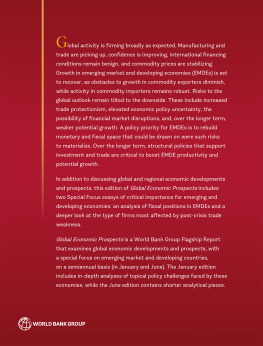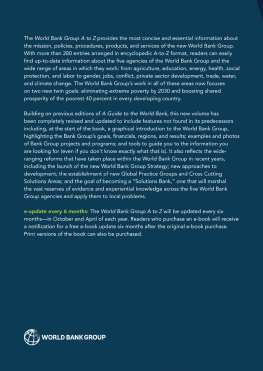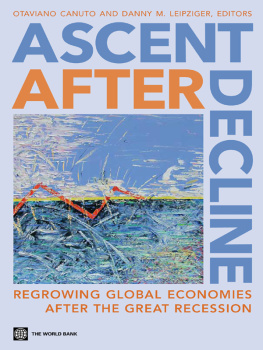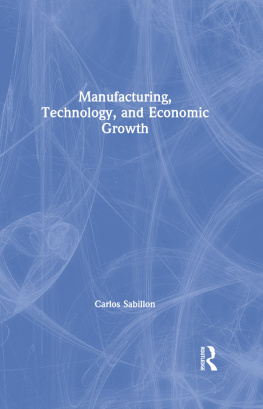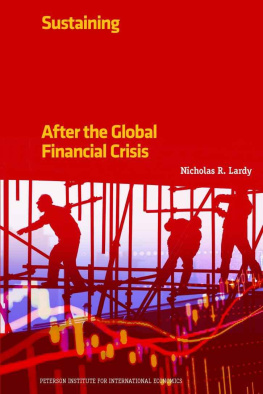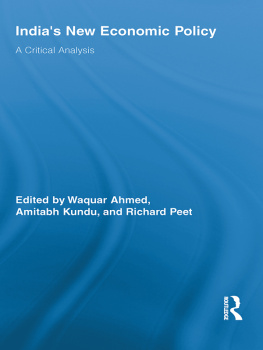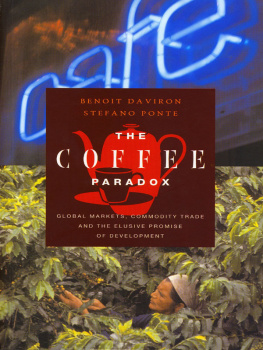Environmental Benefits Statement
The World Bank Group is committed to reducing its environmental footprint. In support of this commitment, the Publishing and Knowledge Division leverages electronic publishing options and print-on-demand technology, which is located in regional hubs worldwide. Together, these initiatives enable print runs to be lowered and shipping distances decreased, resulting in reduced paper consumption, chemical use, greenhouse gas emissions, and waste.
The Publishing and Knowledge Division follows the recommended standards for paper use set by the Green Press Initiative. Whenever possible, books are printed on 50 percent to 100 percent postconsumer recycled paper, and at least 50 percent of the fiber in our book paper is either unbleached or bleached using Totally Chlorine Free (TCF), Processed Chlorine Free (PCF), or Enhanced Elemental Chlorine Free (EECF) processes.
More information about the Banks environmental philosophy can be found at http://crinfo.worldbank.org/wbcrinfo/node/4.

A World Bank Group Flagship Report
JUNE 2017
Global Economic Prospects
A Fragile Recovery

2017 International Bank for Reconstruction and Development / The World Bank
1818 H Street NW, Washington, DC 20433
Telephone: 202-473-1000; Internet: www.worldbank.org
Some rights reserved
1 2 3 4 20 19 18 17
This work is a product of the staff of The World Bank with external contributions. The findings, interpretations, and conclusions expressed in this work do not necessarily reflect the views of The World Bank, its Board of Executive Directors, or the governments they represent. The World Bank does not guarantee the accuracy of the data included in this work. The boundaries, colors, denominations, and other information shown on any map in this work do not imply any judgment on the part of The World Bank concerning the legal status of any territory or the endorsement or acceptance of such boundaries.
Nothing herein shall constitute or be considered to be a limitation upon or waiver of the privileges and immunities of The World Bank, all of which are specifically reserved.
Rights and Permissions

This work is available under the Creative Commons Attribution 3.0 IGO license (CC BY 3.0 IGO) http://creativecommons.org/licenses/by/3.0/igo. Under the Creative Commons Attribution license, you are free to copy, distribute, transmit, and adapt this work, including for commercial purposes, under the following conditions:
AttributionPlease cite the work as follows: World Bank Group. 2017. Global Economic Prospects, June 2017: A Fragile Recovery. Washington, DC: World Bank. Washington, DC: World Bank. doi: 10.1596/978-1-4648-1024-4. License: Creative Commons Attribution CC BY 3.0 IGO
TranslationsIf you create a translation of this work, please add the following disclaimer along with the attribution: This translation was not created by The World Bank and should not be considered an official World Bank translation. The World Bank shall not be liable for any content or error in this translation.
AdaptationsIf you create an adaptation of this work, please add the following disclaimer along with the attribution: This is an adaptation of an original work by The World Bank. Views and opinions expressed in the adaptation are the sole responsibility of the author or authors of the adaptation and are not endorsed by The World Bank.
Third-party contentThe World Bank does not necessarily own each component of the content contained within the work. The World Bank therefore does not warrant that the use of any third-party-owned individual component or part contained in the work will not infringe on the rights of those third parties. The risk of claims resulting from such infringement rests solely with you. If you wish to re-use a component of the work, it is your responsibility to determine whether permission is needed for that re-use and to obtain permission from the copyright owner. Examples of components can include, but are not limited to, tables, figures, or images.
All queries on rights and licenses should be addressed to the Publishing and Knowledge Division, The World Bank, 1818 H Street NW, Washington, DC 20433, USA; fax: 202-522-2625; e-mail: pubrights@worldbank.org.
ISBN (paper): 978-1-4648-1024-4
ISBN (electronic): 978-1-4648-1026-8
DOI: 10.1596/978-1-4648-1024-4
Cover design: Bill Pragjuski (Critical Stages).
The cutoff date for the data used in this report was May 24, 2017.
Table of Contents
Acknowledgments |
Abbreviations |
Chapter 1 | Global Outlook: A Fragile Recovery |
Summary |
Major economies: Recent developments and outlook |
Global trends |
Emerging market and developing economies: Recent developments and outlook |
Risks to the outlook |
Policy challenges |
References |
Box 1.1 Low-income countries: Recent developments and outlook |
Box 1.2 Regional perspectives: Recent developments and outlook |
Special Focus 1 | Debt Dynamics in Emerging Market and Developing Economies: Time to Act? |
Introduction |
Evolution of fiscal positions |
Fiscal positions in episodes of financial stress |
Conclusion |
References |
Special Focus 2 | Arms-Length Trade: A Source of Post-Crisis Trade Weakness |
Introduction |
Characteristics of intra-firm and arms-length trade |
Evolution of intra-firm and arms-length trade since the crisis |
Factors contributing to the sharp post-crisis slowdown in arms-length trade |
Conclusion |
References |
Chapter 2 | Regional Outlooks |
East Asia and Pacific |
Recent developments |
Outlook |
Risks |
Europe and Central Asia |
Recent developments |
Outlook |
Box 2.2.1 Reversal in 2016 of diverging growth paths |
Risks |
Latin America and the Caribbean |
Recent developments |
Outlook |
Box 2.3.1 Continued growth divergence within Latin America and the Caribbean |
Risks |
Middle East and North Africa |
Recent developments |
Outlook |
Risks |
|
Next page
